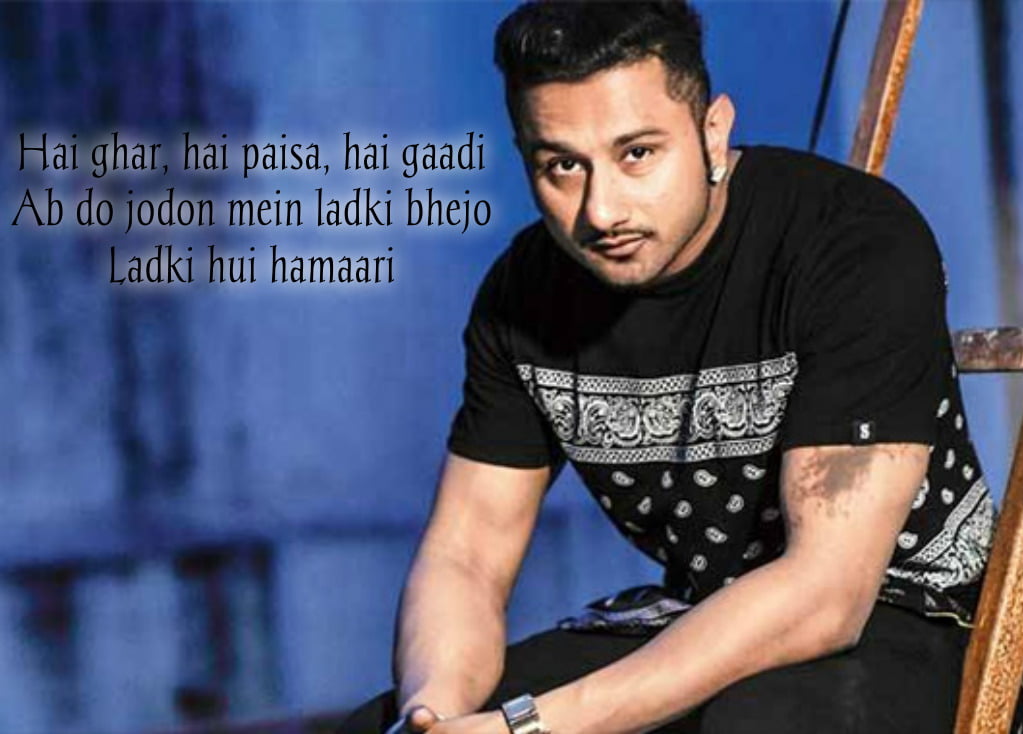Honey Singh has made headlines yet again for his problematic lyrics, prompting legal action against him. The Punjab Women Commission recently filed a complaint against the rapper for using vulgar lyrics against women in one of his songs. Following the complaint, the singer, along with music producer Bhushan Kumar, was booked by the Punjab Police for the lyrics of his song “Makhna”.
A case has been filed against him under Sections 294 (obscene acts) and Section 509 (punishment for word, gesture or act intended to insult the modesty of a woman) of the Indian Penal Code (IPC), reported by The Indian Express. Additionally, he has been charged under Section 67 (punishment for publishing or transmitting obscene material in electronic form) of the Information Technology Act, 2000, and the Indecent Representation of Women (Prohibition) Act, 1986, according to Mohali Senior Superintendent of Police, Harcharan Singh Bhullar. The commission has requested that the song should be banned in the state for its objectionable lyrics.
Following the complaint, the singer, along with music producer Bhushan Kumar, was booked by the Punjab Police for the lyrics of his song “Makhna”.
Prior allegations
The rapper is no stranger to such allegations of indecency and sexism in his lyrics. In May 2013, he faced flak for his song “Main Hoon Balatkari” (I am a rapist) which he later claimed he did not write. The Punjab and Haryana High Court had ordered the Punjab government to take action against Singh for his controversial song. The court deemed the song to be “shameful” and “disrespectful to women,” according to an article published by the British Broadcasting Corporation (BBC) in 2013.
Misogynistic lyrics
The misogyny in Honey Singh’s songs is not lost. A sensitive topic like rape becomes a means for creating substandard music. One of his earlier songs, sung in collaboration with the rapper Baadshah, has as its title a lewd reference to the female genitalia (Choot). The explicit song is basically about asserting his masculinity by having sex with a woman. He forces himself on the woman and demands that she sleep with him simply because he believes he is entitled to it.
In one song, he proudly calls himself a rapist and in another he states “main hoon womanizer, mujhe akele mein mat mil” (I am a womanizer. Don’t meet me alone). In the latter song, he goes on to describe the multitude of women whom he does not find attractive. These include girls made of ‘silicon’, brown girls, as well as girls with “gori gori skin” (fair complexion). He rejects these traits on account of being a lion who isn’t satiated with grass—reminiscent of the popular sexist trope where women must possess certain attributes in order to be desirable to men. These physical features just aren’t good enough to satiate his predatory sexual appetite.

Objectifying women
The poster child for sexual objectification, the rapper is obsessed with singing about women’s body parts—not in the style of the poetic blazon—reducing women to those parts, time and again. Marked with the presence of the male gaze, the songs reduce women to objects of male sexual desire.
“Brown rang“(dark complexion) and “bomb figure” are popular examples. He objectifies a woman’s “patli kamar” (lean waist), which is further accentuated by her tight jeans. The song “Blue Eyes” which became immensely popular after its release in 2013 is problematic to no end. At the outset, the song seems to be a tribute to a woman’s hypnotizing blue eyes, but the woman is constantly objectified. Her body is repeatedly likened to a “bomb” in the chorus. And of course, he doesn’t fail to mention her “chhoti dress” (short dress).
Also read: Watch: Let’s Talk About Sexism In Our Language
Toxic masculinity
Male entitlement is a predominant idea in several songs. In this song, he describes himself as a “shikari” (hunter) and totally dismisses the concept of consent with “teri life mein dena chahta hoon main dakhal” (I want to interfere in your life) and “lemme grab you girl”. He demands a woman’s attention with, “Meri aankhon mein dekha kar jab main baat karta hoon” (look into my eyes when I talk to you).
The poster child for sexual objectification, the rapper is obsessed with singing about women’s body parts—not in the style of the poetic blazon—reducing women to those parts, time and again.
Most of his songs represent a very limited understanding of women. Songs like these are elemental in promoting the notion of women as ‘gold diggers’. The videos as well as the lyrics generally suggest that the women thus featured can be appeased simply through luxurious cars and the extravagant lifestyle of the male singer.
Songs sung by the likes of Honey Singh normalise creepy behaviour. Every time he releases a song, I expect some sort of misogyny, and of course, he delivers!
While it can be argued that art is for the sake of entertainment and doesn’t endorse the beliefs of the artist, its damaging effects cannot be ignored. Art holds the power to influence the thinking of its viewers and listeners, and it is about time that artists accept their responsibility to create better content.
Also read: Bolna Aunty Aau Kya: The Mysterious Lure of ‘Cringe-Pop’
Featured Image Source: Global Punjab
About the author(s)
Bhawna Singh is pursuing Masters in English from University of Delhi. She appreciates memes and dark humour. When she isn't reading or watching something, she can be found obsessing over Wednesday Addams.





Hi , WI would love to see an interview with India’s lesbian feminist indie artist Pragya Pallavi. She is a very strong woman and needs to be featured here as this is the site about feminism in India.
Honey Singh’s songs have always made me feel. His songs were the reason why I stopped listening to Bollywood music.